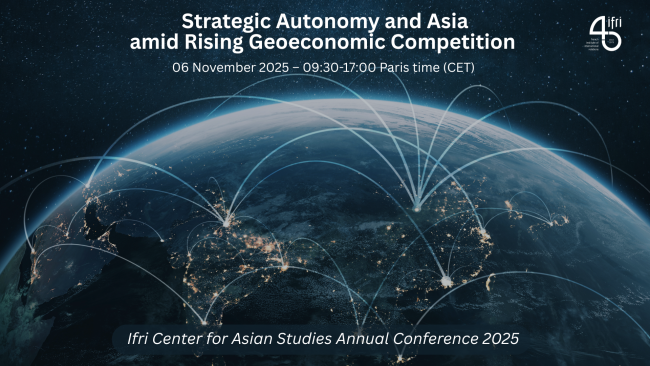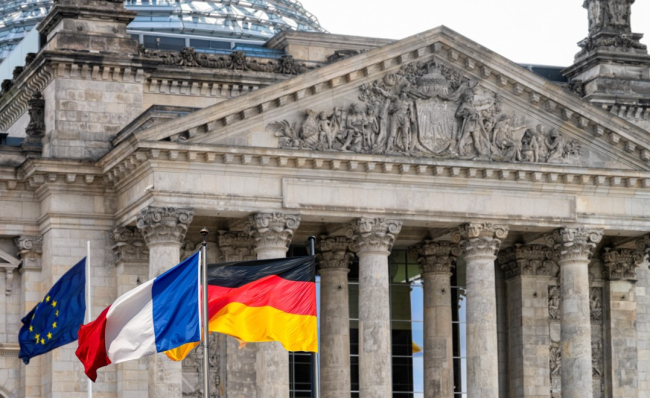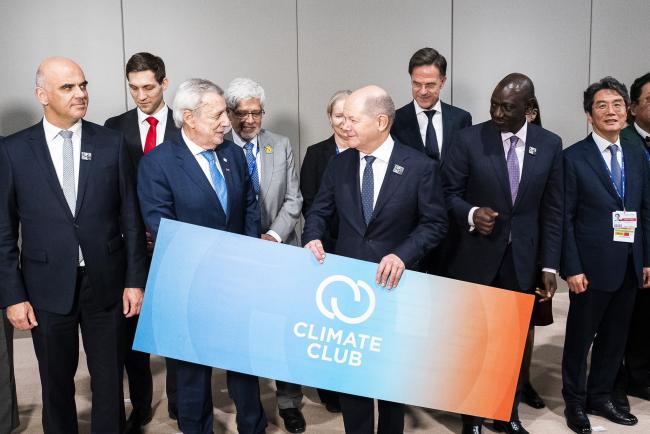Foreign Climate Policy – Fostering Energy Transition and Combatting Climate Change Worldwide

Practical information
Themes and regions
Related centers and programs

On December 6, 2023 during the COP28, Germany presented its new Strategy on Climate Foreign Policy. The strategy seeks to build strong partnerships with countries worldwide in the fight against climate change, maintaining biodiversity and securing renewable energy sources.
This strategy is a first in its kind and should be part of the external dimension of the EU’s Green Deal. While taking part in multiple international fora for climate cooperation, Germany also pursues its own interests by linking its foreign policy to climate and energy issues, which have been increasingly critical due to the war in Ukraine.
In this context, and with the upcoming European elections taking place at a time of growing uncertainty for the climate cause, what is the potential of Climate Foreign Policy for Germany, France, and the EU? How can emerging, developing and industrialized countries mutually benefit from climate and energy partnerships, and what are the challenges to make these partnerships work?
This event will present the main insights on Germany’s current strategy by looking at the development potential for climate cooperation.
Co-organized by the Study Committee on Franco-German Relations (Cerfa) and the Heinrich Böll Foundation Paris
The Webinar is public and will be held in English on the Zoom platform
The Zoom link will be sent the day before the event.
Replay
Speakers
Find out more
Germany’s Strategy on Climate Foreign Policy: Balancing Sustainable Development and Energy Security
With the war in Ukraine, Germany’s “traffic light” coalition government has had to adapt its climate policy to the upheavals caused by this war, which has turned its economic, energy, and military model upside down. Against a backdrop of high energy costs and increasing calls for reshoring in Europe, German industry is looking at how to maintain its competitiveness while decarbonizing its industry.
Related Subjects
Other events

Strategic Autonomy and Asia amid Rising Geoeconomic Competition
Amid growing strategic and geopolitical uncertainty, Europe is grappling with the notion of its strategic autonomy. For Europe’s partners in Asia, the concept is also becoming increasingly salient as the world enters an era of structural transformation.

France-Germany, The Engine Under Pressure
Annual Conference of The Study Committe on Franco-German Relations (Cerfa)
Faced with a profoundly disrupted strategic and economic environment, Franco-German cooperation is more than ever the central pillar of Europe's future. The war in Ukraine, energy and technological dependence, and uncertainty about the strength of the transatlantic ties require urgent deepening of European sovereignty, both in terms of defence and economic and industrial competitiveness.

The New Nuclear Instabilities on the Korean Peninsula
From the growing size and diversification of the North Korean nuclear arsenal, and an open rhetoric in favor of nuclear proliferation in the South because of the loss of credibility of U.S. extended deterrence, the Peninsula is facing raising nuclear tensions.













